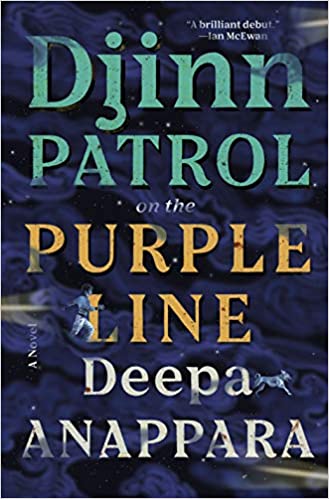 I rarely review books here that aren’t YA, but I enjoyed this one and think some of you might, as well. This is a rare suspense novel set in India (at least it’s rare to me—when I think of suspense, it’s almost always with white characters).
I rarely review books here that aren’t YA, but I enjoyed this one and think some of you might, as well. This is a rare suspense novel set in India (at least it’s rare to me—when I think of suspense, it’s almost always with white characters).
Jai is a nine-year-old Hindu boy in what I think is a slum in a fictional Indian city. He has two good friends, Pari, who’s a girl and smarter than him (though he’d be loathe to admit it), and Faiz, a Muslim boy. Jai is a little obsessed with crime shows and thinks he’d make a great detective. So when a classmate of his goes missing, he takes it upon himself to find out what happened, enlisting Pari and Faiz as his assistants. He feels this is necessary, since the police came, bribed the missing boy’s mom for her one valuable item, a gold chain given to her by her employer, and left promising to do exactly nothing. Bringing the police in is a source of tension for the entire slum, because they are always threatening to raze it, which would obviously make a huge number of people homeless. The three kids start investigating, but before they make much progress, another boy goes missing. Then a girl. As things escalate, so does their investigation, at least until it seems positively impossible.
One of the things I loved the most about the book was the authentic feel of a culture far removed from my every day life. Anappara has lots of details about living in the slum, because it’s all told through the perspective of someone who knows nothing but that (even if he thinks otherwise). There’s even a glossary in the back for all the Indian terms used for things like foods and slang, even though you can generally tell from the context what things are (I mean, not necessarily exactly, but you get the gist). But this really added to the flavor of the book. In general, Jai's voice is very colloquial, with statements like, “I like headstands a lot more than the huff-puff exercises…” so it makes complete sense that he’d be throwing in Indian terms.
Jai is a very annoying little brother to his twelve-year-old sister, even though he thinks she’s the annoying one. It’s interesting to see his perspective in this and everything else, because the reader can see clearly how wrong he is about things, which is often funny. For example, he’s trying to be the boss of his friends, and be the official detective:
“How come you get to be the detective?” Pari asks.
“That’s very true,” Faiz says. “Why can’t you be my assistant?”
“Arrey, what do you know about being a detective? You don’t even watch Police Patrol.”
“I know about Sherlock and Watson,” Pari says. “You two haven’t even heard of them.”
“What-son?” Faiz asks. “Is that also a Bengali name?”
I really enjoyed this book and recommend it for anyone looking for a different kind of suspense novel that also touches on social issues in India.
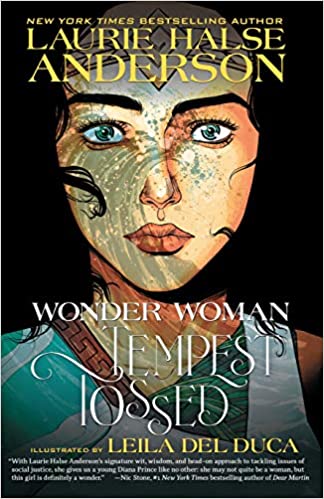 I was a little surprised to see a graphic novel by Laurie Halse Anderson, but of course I had to check it out. I'm not a superhero fan in general, but I sometimes make an exception for Wonder Woman. I'm glad I did this time. It was illustrated by an artist I wasn't familiar with, Leila del Duca, but she impressed me with her sharp style.
I was a little surprised to see a graphic novel by Laurie Halse Anderson, but of course I had to check it out. I'm not a superhero fan in general, but I sometimes make an exception for Wonder Woman. I'm glad I did this time. It was illustrated by an artist I wasn't familiar with, Leila del Duca, but she impressed me with her sharp style.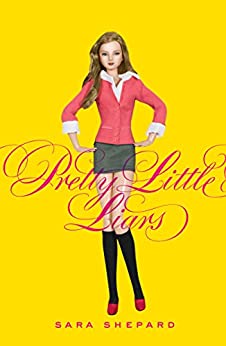 I know this book came out a while ago (2006) and is a TV show now, but I picked it up based on a recommendation for my suspense/thriller class for my MFA. I’d obviously heard of it, but never read it.
I know this book came out a while ago (2006) and is a TV show now, but I picked it up based on a recommendation for my suspense/thriller class for my MFA. I’d obviously heard of it, but never read it.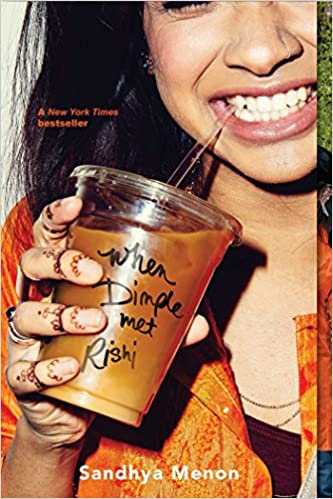 This is a light romance with two second-generation Indian-Americans dealing with being part of two cultures.
This is a light romance with two second-generation Indian-Americans dealing with being part of two cultures.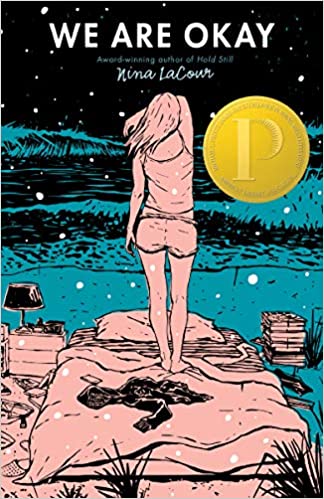 This is another very quiet book from LaCour that punches you right in the heart, much like Hold Still. I’ve read some of her other books and enjoyed them (I’ve given each of them 5 stars on Goodreads, which I rarely do), so I expected to like this one. I did— it got another 5-star rating.
This is another very quiet book from LaCour that punches you right in the heart, much like Hold Still. I’ve read some of her other books and enjoyed them (I’ve given each of them 5 stars on Goodreads, which I rarely do), so I expected to like this one. I did— it got another 5-star rating.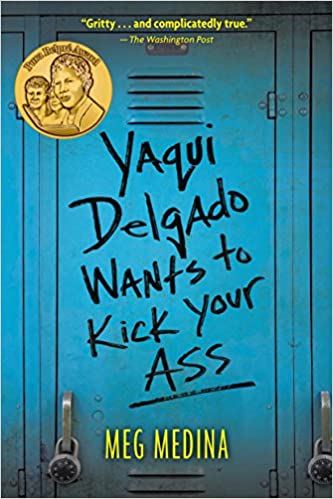 The title of this book pretty much tells you what it’s about: bullying. But it’s about more than that, too, and it didn’t feel like an issue book to me.
The title of this book pretty much tells you what it’s about: bullying. But it’s about more than that, too, and it didn’t feel like an issue book to me. If you know anything about this book, you know it’s important. Anderson has already written one important novel about sexual assault—Speak—but this is her far more personal memoir, written both to explain how she came to write Speak and simply tell her story. In SHOUT, she writes in verse, which made me wonder how I could possibly read it. Although I know this is weird, any time I see poetry, I get all anxious and can’t pay any attention to what I’m reading. So I had concerns. But then I found out there was an audiobook version—read by Anderson herself—so I checked that out and started listening. It didn’t sound like poetry; instead, it sounded just like someone telling a story, which made it completely accessible to me.
If you know anything about this book, you know it’s important. Anderson has already written one important novel about sexual assault—Speak—but this is her far more personal memoir, written both to explain how she came to write Speak and simply tell her story. In SHOUT, she writes in verse, which made me wonder how I could possibly read it. Although I know this is weird, any time I see poetry, I get all anxious and can’t pay any attention to what I’m reading. So I had concerns. But then I found out there was an audiobook version—read by Anderson herself—so I checked that out and started listening. It didn’t sound like poetry; instead, it sounded just like someone telling a story, which made it completely accessible to me.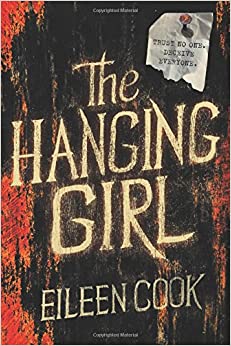 I’ve been reading a lot more YA suspense lately, partially because there’s more of it coming out, and partially because I’m interested in trying my hand at it at some point.
I’ve been reading a lot more YA suspense lately, partially because there’s more of it coming out, and partially because I’m interested in trying my hand at it at some point.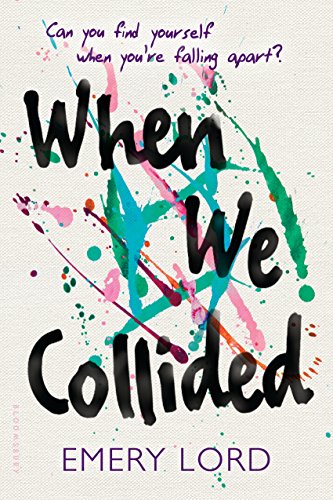 When We Collided was at the top of my stack of mental health-related books, so I picked it up this week. Fortunately, it isn’t an issue book—it’s a good story with two main characters in very different situations who “collide” and their lives are forever changed, as the title implies.
When We Collided was at the top of my stack of mental health-related books, so I picked it up this week. Fortunately, it isn’t an issue book—it’s a good story with two main characters in very different situations who “collide” and their lives are forever changed, as the title implies.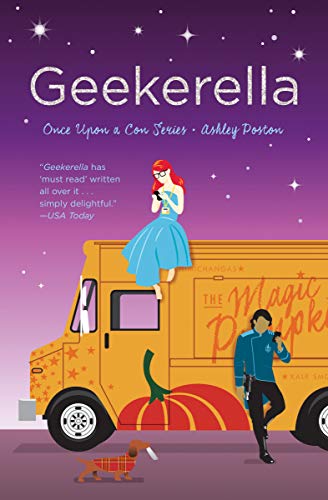 The idea of this book is really fun, if you’re into any kind of geeky fandom. And it’s all wrapped up as a retelling of Cinderella, which is cool.
The idea of this book is really fun, if you’re into any kind of geeky fandom. And it’s all wrapped up as a retelling of Cinderella, which is cool.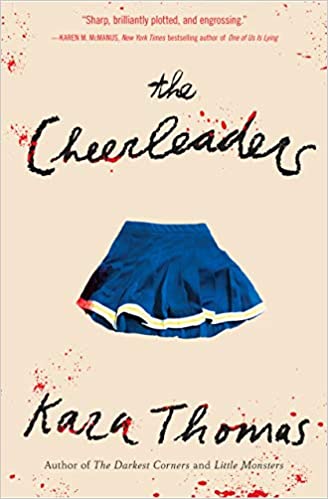 I’ve been reading more suspense and thrillers lately, partially because I’m interested in turning one of my books into a suspense so I need to study up, and partially (of course) because I enjoy reading them. This was my first Kara Thomas book, but she apparently has some others, so I will be checking those out.
I’ve been reading more suspense and thrillers lately, partially because I’m interested in turning one of my books into a suspense so I need to study up, and partially (of course) because I enjoy reading them. This was my first Kara Thomas book, but she apparently has some others, so I will be checking those out. Starfish is the story of Kiko Himura, a 17-year-old Nebraska girl with a Japanese-American father and an obnoxiously white mother (who’s a total narcissist, but the way). Kiko’s mom has belittled her her whole life for not being “beautiful” like she (the mom) is. By beautiful, she means blonde and blue-eyed. Because Kiko takes after her father physically. To white people she’s too Japanese, and to Japanese people she’s too white. It’s not just her mom—the kids at school make sure she thinks this, too.
Starfish is the story of Kiko Himura, a 17-year-old Nebraska girl with a Japanese-American father and an obnoxiously white mother (who’s a total narcissist, but the way). Kiko’s mom has belittled her her whole life for not being “beautiful” like she (the mom) is. By beautiful, she means blonde and blue-eyed. Because Kiko takes after her father physically. To white people she’s too Japanese, and to Japanese people she’s too white. It’s not just her mom—the kids at school make sure she thinks this, too.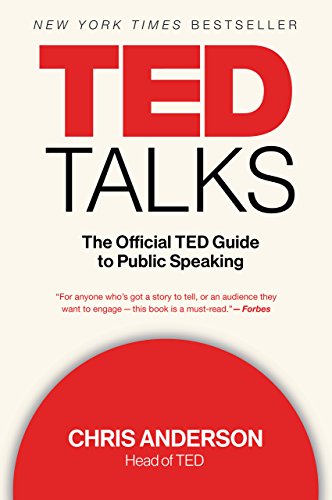 This is going to be an unusual review for this blog. Obviously I usually review YA fiction. But today, since I didn’t finish another book this week, I’m reviewing an adult fiction book that I think might still be of relevance to my readers. A lot of people have to get up on a stage—at work, in school, in church, wherever. This book could make you more comfortable doing so, and help you make a bigger impact.
This is going to be an unusual review for this blog. Obviously I usually review YA fiction. But today, since I didn’t finish another book this week, I’m reviewing an adult fiction book that I think might still be of relevance to my readers. A lot of people have to get up on a stage—at work, in school, in church, wherever. This book could make you more comfortable doing so, and help you make a bigger impact. This book’s been sitting on my shelf a while (in very good company) and I decided I wanted a quick read that was not for my MFA, so I picked it up. It turned out to be perfect. Even though I’m in a bit of a reading slump, I read it in two days because it’s pretty fast-paced. It’s billed as a contemporary YA romance, but I’d argue it’s romantic suspense, although the suspense doesn’t get started right away.
This book’s been sitting on my shelf a while (in very good company) and I decided I wanted a quick read that was not for my MFA, so I picked it up. It turned out to be perfect. Even though I’m in a bit of a reading slump, I read it in two days because it’s pretty fast-paced. It’s billed as a contemporary YA romance, but I’d argue it’s romantic suspense, although the suspense doesn’t get started right away.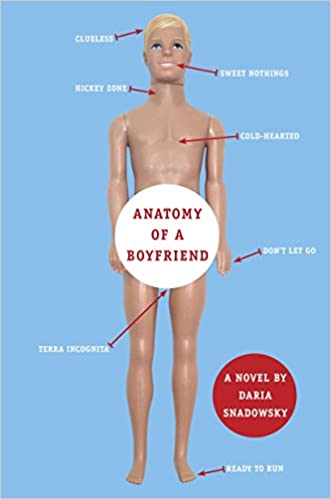 I really enjoyed Anatomy of a Boyfriend, which is a modern day Forever (I say that even though it was written in 2007—it’s aged well, I think). I love the cover, with its cheeky annotations. It’s true that some of the love scenes are a bit clinical, but for what the book is trying to do, it absolutely works.
I really enjoyed Anatomy of a Boyfriend, which is a modern day Forever (I say that even though it was written in 2007—it’s aged well, I think). I love the cover, with its cheeky annotations. It’s true that some of the love scenes are a bit clinical, but for what the book is trying to do, it absolutely works.